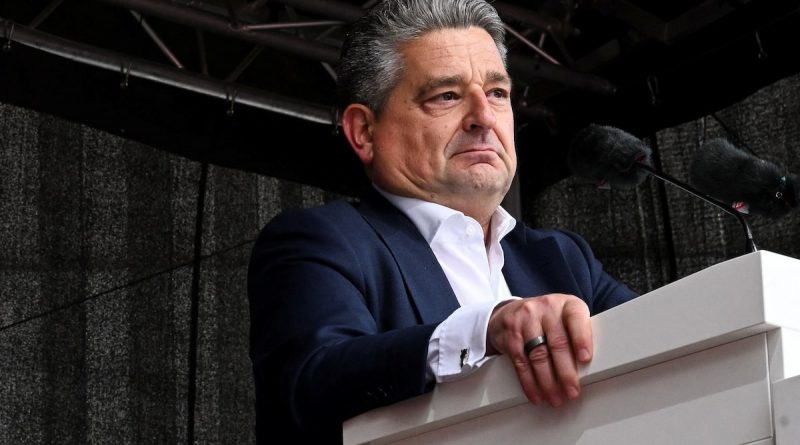Thyssenkrupp and Jindal Steel in Promising Talks on Strategic Steel Partnership
Frankfurt — German industrial giant Thyssenkrupp AG has entered “intensive and constructive” talks with Jindal Steel International, signaling strong potential for a strategic partnership or sale involving its steel division, Thyssenkrupp Steel Europe (TKSE).
The move marks a significant step toward revitalizing Thyssenkrupp’s steel operations while strengthening Jindal’s ambitions to expand its global footprint in Europe’s advanced manufacturing and green steel markets.
Positive Momentum in Strategic Discussions
Speaking at the Frankfurt Stock Exchange during the debut of Thyssenkrupp’s naval unit, CEO Miguel Ángel López Borrego described the ongoing discussions as “very intensive” and “cooperative.”
He emphasized that both sides are committed to achieving a meaningful outcome that benefits all stakeholders.
“Talks are ongoing very intensively,” López said in an interview. “We will see what outcome we’ll have over the next few months, but there is good cooperation and a shared vision for the future of steel.”
The discussions stem from Jindal Steel International’s indicative bid made in September for Thyssenkrupp Steel Europe, which is Europe’s second-largest steelmaker.
The proposed deal could represent one of the most significant Indo-European industrial collaborations in recent years, fostering innovation, sustainability, and technological advancement across the steel value chain.
A Win-Win Collaboration
For Thyssenkrupp, the talks mark an important opportunity to accelerate its restructuring agenda, streamline operations, and focus on its long-term growth sectors, including green technologies, defense, and industrial solutions.
The steel division, while historically vital to Thyssenkrupp’s identity, has faced profitability challenges and rising pension liabilities.
CEO López has made it clear that the company’s aim is to thoroughly assess Jindal’s offer, particularly its commitment to green steel investment — an essential part of Europe’s transition toward carbon-neutral industrial production.
The collaboration could pave the way for new facilities focused on sustainable steel manufacturing, aligning with Germany’s and the EU’s broader decarbonization goals.
For Jindal Steel International, the partnership represents a chance to expand into the European market and leverage Thyssenkrupp’s technological expertise and advanced production facilities.
The move underscores Jindal’s ambition to become a global leader in environmentally sustainable steel production, integrating India’s growing industrial capabilities with Europe’s engineering excellence.
Shifting Strategy and Renewed Optimism
Thyssenkrupp’s potential sale or partnership with Jindal also marks a turning point in the company’s strategic evolution. Several previous attempts to divest or restructure its steel operations had stalled, primarily due to complex pension and labor obligations.
However, the renewed discussions reflect growing optimism that a viable, mutually beneficial solution is within reach.
As a result of Jindal’s entry into the talks, Thyssenkrupp has officially ended negotiations with Czech billionaire Daniel Křetínský, who had been exploring a 50:50 joint venture for the steel unit.
The company’s leadership believes that the Jindal proposal offers a stronger industrial synergy and a more future-focused investment strategy, especially in the realm of green transition technologies.
Strengthening Europe-India Industrial Ties
If finalized, the partnership could mark a milestone in Germany-India economic cooperation, highlighting shared interests in clean energy, innovation, and industrial modernization.
It would also represent a major vote of confidence in Europe’s ability to attract foreign investment for sustainable manufacturing, even amid challenging global economic conditions.
Experts suggest that Thyssenkrupp’s steel unit could benefit immensely from Jindal’s operational scale, resource base, and investment strength.
At the same time, Jindal would gain access to Thyssenkrupp’s expertise in advanced metallurgy, R&D, and its established European customer base — creating a symbiotic relationship with long-term strategic value.
While the discussions are expected to take several months, both companies have signaled a positive outlook. The potential agreement aligns with Thyssenkrupp’s broader transformation plan — focusing on profitability, sustainability, and innovation — while also strengthening Jindal’s presence in global steel markets.
Industry analysts view the talks as a reflection of growing global cooperation in the green steel revolution, where legacy European manufacturers and emerging Asian conglomerates are joining forces to build a cleaner industrial future.
As CEO Miguel López stated, “Our goal is to restructure steel responsibly and position it for long-term success. The cooperation with Jindal reflects a shared commitment to sustainable industrial progress.”
If successful, the partnership could reshape the European steel landscape and mark a new era of collaboration between India and Germany — driven by innovation, sustainability, and shared growth.



